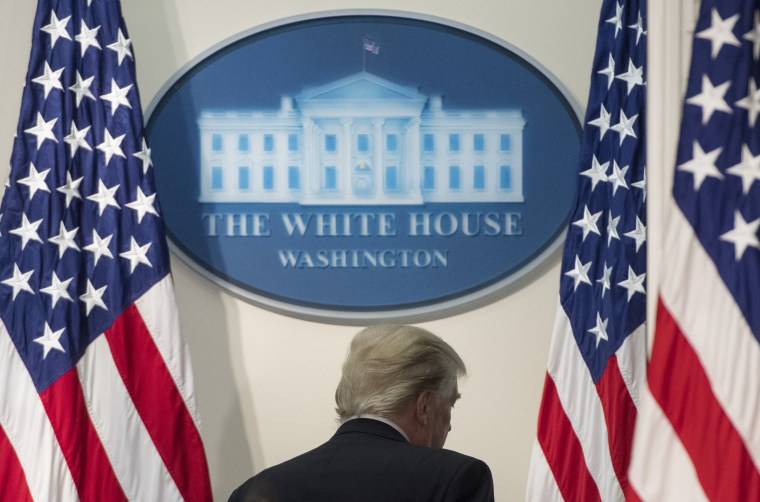Two weeks ago, Donald Trump could've had the most important policy victory of his presidency. Most congressional Democrats had endorsed a bipartisan compromise that would have extended DACA protections to Dreamers, while also providing funding for the president's proposed border wall.
Trump turned it down -- along with five other bipartisan compromises on immigration legislation. It seemed obvious to most that the president should've accepted the deal, but he thought he could hold out for a bigger ransom. Asked on Fox News over the weekend about his plans for a wall, for example, Trump added, "The Democrats have actually agreed to that. But I have to get more."
The strategy isn't subtle: the president believes he can effectively hold Dreamers hostage until Democrats agree to fund the border wall and agree to cut legal immigration. With Trump's deadline for scrapping DACA looming, the White House appeared to have all the leverage.
That leverage has suddenly evaporated.
The U.S. Supreme Court declined Monday to hear the Trump administration's appeal of a federal judge's ruling that requires the government to keep the Deferred Action for Childhood Arrivals program going.Under a lower court order that remains in effect, the Department of Homeland Security must continue to accept applications to renew DACA status from the roughly 700,000 young people, known as Dreamers, who are currently enrolled. The administration's deadline of March 5, when it intended to shut the program down, is now largely meaningless.
This clearly isn't what the White House wanted to hear.
The Supreme Court's inaction doesn't actually resolve the underlying conflict, but it does have a dramatic effect on the calendar. Trump arbitrarily chose the March 5 deadline -- which is just a week away -- at which point his administration was prepared to start deporting these young people, whom the president claims to support.
After Trump rejected six bipartisan compromises, it looked like a game of chicken with high stakes and three possible outcomes (1) the White House would back off its hardline position; (2) Democrats would endorse major cuts to legal immigration; or (3) DACA would die and Dreamers would face a bleak future.
As of this morning, the landscape looks quite different. Lawmakers will continue their efforts to find a bipartisan legislative solution -- a task that's proven all but impossible of late -- but the remedy need not emerge this week.
A federal court ruled last month to extend the existing DACA policy, and the Trump administration will now appeal that decision to the 9th Circuit. (There's a related case out of New York that will now go to the 4th Circuit.)
The result is a legal process that's likely to take several months.
